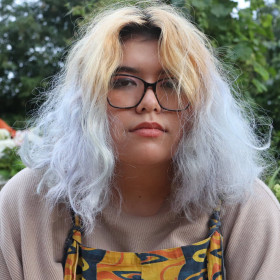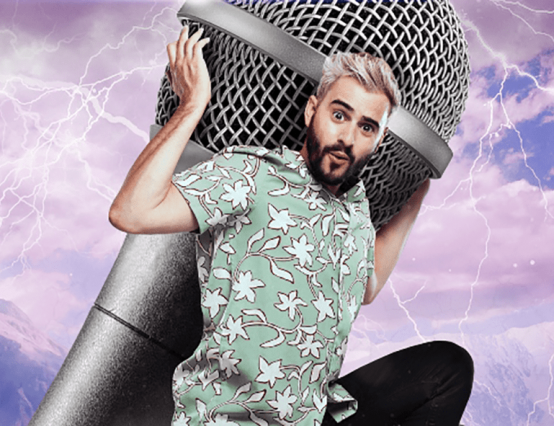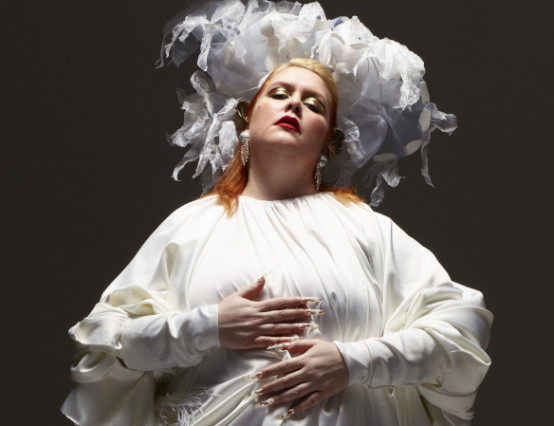In the summer of 2018, I just finished my A-Levels and I deleted Instagram from my phone. Sure, I’d occasionally reply to any tagged posts on my laptop but I’d always stop short at scrolling through my feed.
My feed, a make-shift shrine that I visited every single day. Every post is just as digestible as the next, and because Instagram is based on images I’d always go back to scroll through more. Every morning without fail, throughout the day, and before I went to sleep; these were the final images I saw at night.
Quitting Instagram isn’t technically a big decision in the grand scheme of things. My break lasted a year, and at the time it felt a bit like disappearing off the face of the earth. However, I lived my entire teenagehood through a digital lens. I had signed up for Instagram at the age of thirteen years old.
Why did I do it?
To make acquaintances with my body. To reach out. To take the time to reestablish my relationship with an app that takes a single tap to access on a phone, but led to daily self-directed shame. I was fed up with criticising, comparing, and calling myself out all the time – so I left, and put my mental health first.
In that time, I spent a lot of it reassessing what I viewed Instagram as. For a long time, it felt like a gateway to a quick-fix.
I’d see my favourite influencers selling diet products, and I’d start an inner monologue with myself on how I could possibly afford to purchase these products without anyone knowing. I found myself counting spare change just like my calories. It felt like if I bought what they were promoting then all my body image issues would just vanish. That I’d fit into this societally decided script, and it’d be fine at last (it wasn’t).
It’s easy to be charmed by influencers, especially when you are young and not even familiar with your sense of self yet. Even the term ‘influencer’ can be viewed as a red flag deriving from the verb ‘to influence’, to exert an effect upon someone or something.
The influencers I used to follow never told me explicitly not to accept myself, but they did teach me about societal beauty conventions and norms as if it were an unspoken rule.
As discussed in Crystal Abidin’s book ‘Internet Celebrity: Understanding Fame Online’, often influencers use the selfie as a mode of ‘humanisation’. To bridge the gap between audience and influencer.
The influencer must be simultaneously aspirational and relatable to engage their viewers. Always trying to stay relevant and in a positive light, else they may find their platform ceasing to exist. Often that means what you find on an Instagram feed is a curation of self. Just like arranging paintings for an exhibition, there is the time taken to assess what is going to be put up.
Day-to-day users of Instagram do not see these behind the scenes. In particular, when it comes to influencer ad deals, product promotions and photoshop.
There has been a multitude of investigative stories, documentaries and even pranks exposing the realities of influencer ad deals.
In BBC Three’s ‘Blindboy Undestroys the World’ (2019), three influencers were secretly filmed in auditions to promote a made-up poisonous cyanide diet drink named ‘Cyanora’. It was also revealed that some influencers do not even sample any of the products they promote on Instagram, despite claiming it helped them lose weight.
What is disturbing about this revelation is the fact that some influencers are prepared to abandon their responsibility and capitalise on any product or service, regardless of how it may harm their follower’s wellbeing.
In 2020, research showed that three-quarters of Instagram influencers buried advertisement disclosures in their posts, even to the point where the UK’s Advertising Standards Authority (ASA) began to name and shame specific influencers for consistently failing to mark their posts with ‘#ad’.
The issue with this is that it becomes difficult to distinguish what is for profit, and what is genuine. Conflating the two together is common but it has devastating consequences, especially when the content being consumed perpetuates rigid beauty standards or even takes a darker turn – promoting diet products.
Recent research shows that body comparisons on Instagram are harmful to women’s body image. The fear is that with low-self esteem and dissatisfaction with one’s body, the higher the risk that it may develop into eating disorders.
These issues are known by social media giants, who in turn have downplayed them. Following the release of the Facebook Papers, internal research from 2019 unveiled that Facebook’s acquired platform Instagram exacerbated body image issues in teenage girls. 32% of teenage girls admitted that Instagram made them feel worse about their bodies.
Often glossed over is what impact social media has on male body image. 62% of Instagram fitness accounts promoted the beauty script of lean and muscular body types.
Further research shows that it is not only young people at risk from social media but also adults across their lifespan as we continue to use technology.
Responsibility is important, especially to those on social media sites who have spheres of influence – whether that be an irresponsible influencer or some shady social media executive. Acknowledging these issues is a step forward to taking action to make sure yourself and others are protected online.
Instagram has vowed to do better. The platform consults with experts in eating disorders and body image issues to better understand how to support those affected, including resources from a range of international support services from: Beat (UK), National Eating Disorder Information Centre (Canada), and Butterfly Foundation (Australia).
How Instagram addresses potentially harmful content has changed in the years since I was growing up, such as their ‘Take a Break’ feature, or them flagging up when you’ve spent too much time searching a specific topic.
There are countless Instagram movements working towards better perceptions of the body. The increasing rise of the body neutrality movement emphasises that you don’t need to love how you look. As mentioned before, Instagram is a curation of most things positive, and positivity can often turn toxic. Neutrality is a step towards making peace with one’s body.
Nowadays, when I go onto Instagram I still do check daily but it’s far less frequent. I surround myself with content that makes me feel comfortable and informed – and I unfollow or block anything that doesn’t subscribe to that. After all, these are the measures I have to take for my mental health online.
Whilst my Instagram idealisation has whittled down throughout the years. Honestly, the shame hasn’t suddenly disappeared. At least I’ve now made the healthy decision to not follow it anymore.
If you, or someone you know, have been affected by eating disorders, the following organisations may be able to help: https://www.beateatingdisorders.org.uk/, https://www.eatingdisordersni.co.uk/, https://www.nhs.uk/mental-health/feelings-symptoms-behaviours/behaviours/eating-disorders/overview/









0 Comments